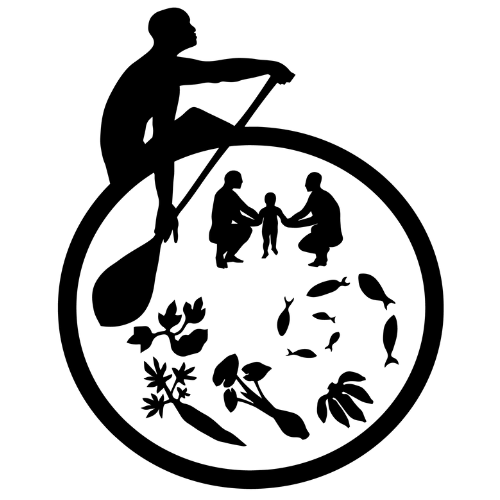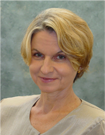
Wow! It’s been 5 years.
Congratulations to the CHL Team and the CHL communities for the hard work and success in working together and coalition building!
I believe that we have moved the needle (though our intervention results are pending) in mobilization and coordination of a common Pacific message of wellness and collaboration.
Thank you to all who collaborated! The Pacific can do this; the Pacific can be a model. CHL CNMI has shown us this, earning World Health Organization recognition for their efforts.
Many dedicated CHLers continue to work for well-being in the Pacific.
Thank you!
Rachel
Professor Rachel Novotny, PhD, RD
Principal Investigator and Program Director, Children’s Healthy Living Program
From the CHL Training Program
NEW TRAINING PROGRAM! The Child Health Assessment in the Pacific (CHAP) Summer Fellowship Program is a new program funded through a grant with USDA. This will continue CHLs workforce development objective and provide much needed anthropometry and dietary assessment skills to the Pacific region. CHAP hopes to fund 30 undergraduate students over the next 3 summers (10 students each summer) in the program where they will get to test their newly developed skills through a mentored place-based field experience. The program is currently reviewing applications from undergraduate students enrolled at the CHAP partner institutions of Chaminade University (Hawai‘i and Chuuk campuses), Northern Marianas College, University of Guam and University of Hawai‘i at Mānoa. For more information please visit:http://www.chl-pacific.org/cha
REGISTRATION OPENED IN MARCH for courses being offered by the newly formed CHL Summer Institute (SI) during summer 2016. In partnership with the University of Hawai‘i Outreach College, CHL SI offers students and professionals the opportunity to enroll in a number of online courses related to introductory nutrition for the Pacific, child health assessment and monitoring, culturally appropriate nutrition and health practice and lifespan nutrition. Stay tuned for information on other courses planned to be offered in the future. To find out more details on the courses being offered through CHL SI and how to register please visit: http://www.outreach.hawaii.edu
——————————————————————————————————-
CONGRATULATIONS!!!! CHL is proud to celebrate our trainees continued accomplishments this past semester. Two trainees (Srue Wakuk and Neelma Skilling) were selected for the highly competitive Cancer Center internship program, which is supported in part by the NCI Cancer Center Support Grant (CCSG), CURE Supplement. Trisha Johnson graduated in December with a B.S. in Food Science and Human Nutrition (Sports and Wellness Track) and will be starting a two year online International Sports Certificate program.
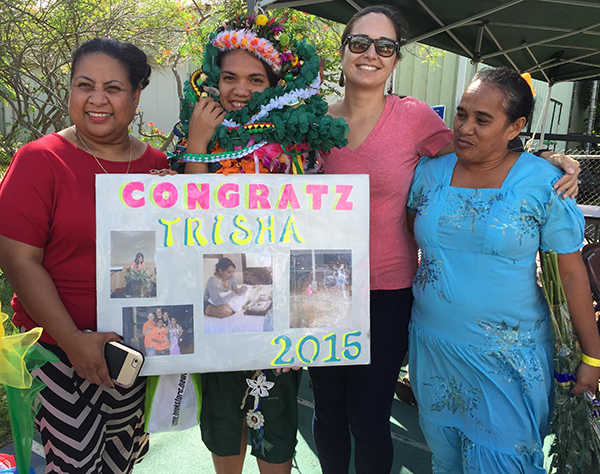
Alaska
CHL Team Alaska
As CHL in Alaska comes to an end, we are left with a profound sense of gratitude for the dedicated researchers, families, and community members that came together to make the program successful. We discovered early on that Fairbanks has a vibrant, active network of individuals and organizations committed to improving child health in Alaska. Head Start, THREAD, Fairbanks Families, and many others welcomed us with open arms and open minds. The valuable insight and support they provided were paramount to all of our efforts. We are also very grateful to the other CHL jurisdictions. We were inspired by their creativity, enthusiasm, and devotion to their communities. THANK YOU to our CHL family, from all of us in Alaska, to all of you.

American Samoa
CHL Team American Samoa
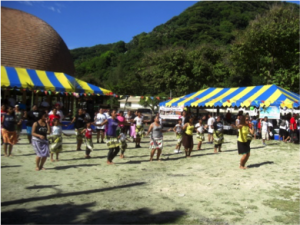
The American Samoa CHL family would like to extend many fa’afetai tele lavas to everyone who has supported us and made things possible. Dr. Rachel Novotny, mahalo nui loa for leading the entire CHL family. Dr. Marie Fialkowski, mahalo nui loa to you as well for assisting Rachel and helping her keep CHL afloat. Thank you everyone—Alaska, Chuuk, CNMI, Guam, Hawai‘i, Kosrae, Marshall Islands, Palau, Pohnpei, and Yap!
American Samoa Community College’s Land Grant family and many of its community partners, including the American Samoa Department of Education, the American Samoa Early Childhood Education, the American Samoa Non-Communicable Disease Coalition, village leaders, community champions and role models, and the children and families in each of the intervention, optimized, and temporal villages have always extended their warm blessings and thanks for what CHL has brought to our territory.
We are hopeful that our people will continue to move forward to help the next generation of young people wage war against childhood obesity.
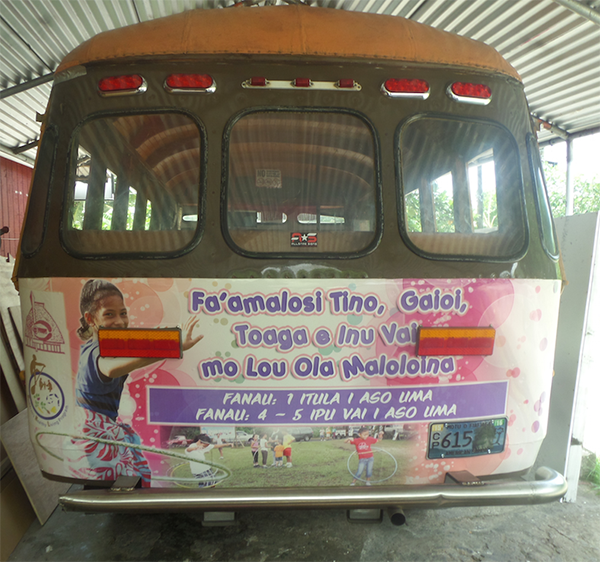
Commonwealth of the Northern Mariana Islands
CHL Team Commonwealth of the Northern Mariana Islands
“Chartering a new course in child and adult health monitoring in the Northern Mariana Islands”
What would you do if you had access to experts in child and adult health/nutritional assessment, collaborative relationships with key partners, and the dedication needed to set up a sustainable monitoring system focused on studying indicators of child health? Team CNMI, with assistance from the CHL Coordinating Center, is working collaboratively with the CNMI Head Start and Early Head Start programs to enhance the collection, entry, analysis, and interpretation of height, weight, and head circumference data. Early Head Start works with infants 5 months to 2 years old, while Head Start students must be 3-5 years old.
The monitoring system will better enable Head Start, Early Head Start, and its stakeholders to design and measure programs with the goal of improving child health and BMI status. To date, planning and procedures for measuring child growth, an anthropometry manual for measuring 3-5 year olds, training for Head Start teachers and managers, data collection, entry, and preliminary data analysis have taken place.
In a letter to CHL CNMI, Head Start Director Melissa Palacios wrote, “The data provided previously by CHL on the percentage of young children with sub-optimal growth has helped to illustrate the need to continuously monitor child growth and health.” CNMI Head Start and Early Head Start have committed to continue to work collaboratively with Northern Marianas College-CREES and CHL on establishing a robust child health monitoring and working on programs and policies geared towards improving child health.
The investments made by the CHL program toward improving the overall health and wellness of the young children in the CNMI for the past five years along with building celebrative partnerships has significantly elevated the level of commitment along with the technical expertise needed to further these efforts in the islands.
Team CNMI was also able to make substantive contributions to the CNMI Adult Non-Communicable Disease Hybrid Survey by advocating for the inclusion of questions to gauge sugar-sweetened beverage consumption, processed meat consumption, and anthropometric standardization training (measuring height and weight) for all survey enumerators on Saipan, Tinian, and Rota. CNMI CHL team also wrote a comprehensive training guide on taking anthropometric measurements in people’s homes. A big “si yu’us ma’ase yan tiroow” to Dr. Novotny, Dr. Fialkowski, Dr. Li, and Dr. Esquivel for their support and expertise!
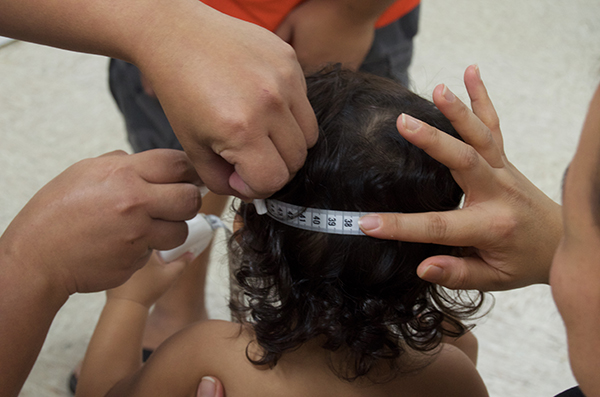
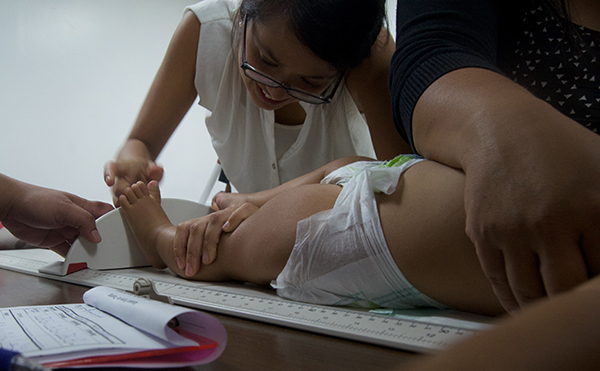
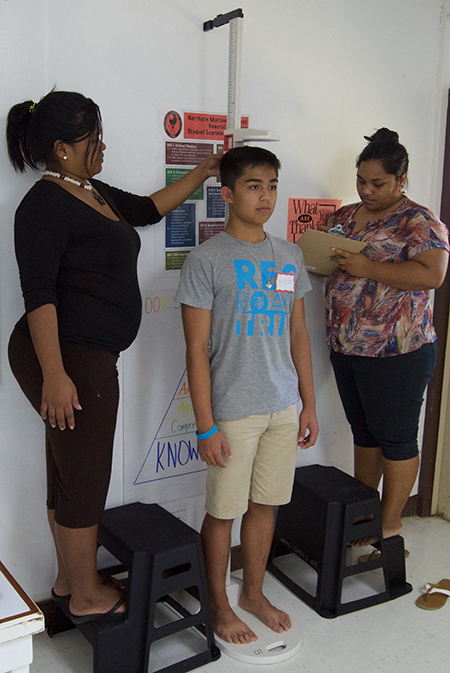
The NCD survey is being led by Commonwealth Healthcare Corporation (CHCC) – Division of Public Health in partnership with the CNMI Dept. of Commerce, Center for Disease Control, World Health Organization, Pacific Island Health Officers Association, CHL, and NMC-CREES. The NCD survey findings will be critical toward furthering the CNMI’s efforts in creating and/or strengthening existing health policies and practices. With the enthusiasm and synergy of our partners, we are excited about the movement toward shaping a healthier CNMI community through data, science, and evidence-driven policy, action, and impact!
Freely Associated States of Micronesia
CHL Team Freely Associated States
The FAS team would like to extend congratulations to Trisha Johnson. Trisha is the first CHL Trainee from the FAS to matriculate and complete her program of study. Trisha received her Bachelor in Food Science and Human Nutrition from UH Manoa in December of 2015. During her course of study, Trisha also successfully passed the International Society of Sports Nutrition Certified Sports Nutritionist Exam, and is now able to carry the CISSN credential.
Since returning to Pohnpei after graduation, Trisha, alongside CHL Pohnpei Outreach Assistant Emihner Johnson, has presented portions of her CHL Research Project during the Early Childhood Centers (ECE) Literacy week held in Pohnpei. Trisha is currently actively looking for employment in her field of study. The team wishes her the best in her future endeavors.

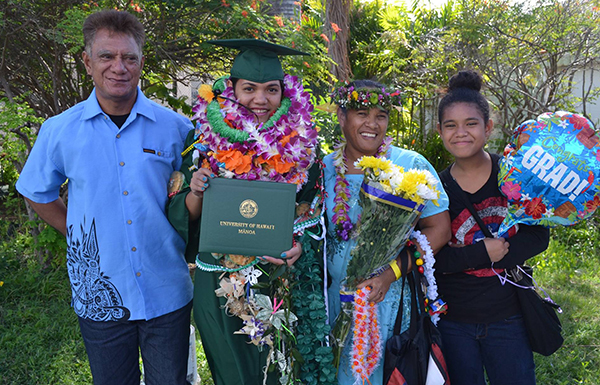
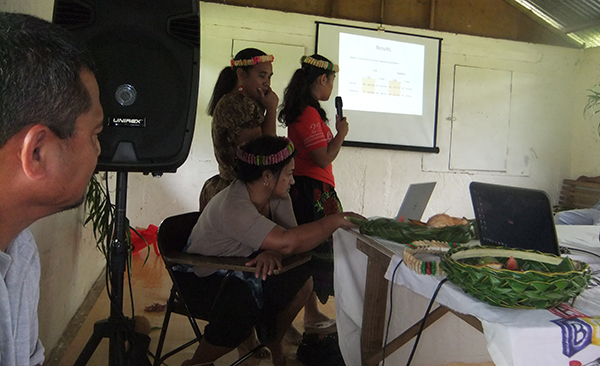
Guam
CHL Team Guam
Guam’s optimized Intervention is going strong. Not only are we delivering to the optimized communities, we are delivering it to the original intervention communities as well.
Through partnerships with Guam CHL, New and Veteran Farmers Program, SNAP-Ed, EFNEP, 4H, and Department of Public Health and Social Services (DPHSS’s) Non-Communicable Disease (NCD) consortium, we just delivered a 4 week Million Step Village Challenge Program to 6 CHL communities.
This program is designed to serve as an initial community entry program that builds community wellness coalitions. It focuses the community on the built walking environment. First they identify a safe walking trail in the village center, and use it by walking together as a village cohort.
Community Healthy Living will be a collaboration of the current CHL, SNAP-Ed, EFNEP, 4H and New and Veteran Farmer Program to expand the CHL message to Guam families. To support and expand this effort we are developing a MOU with DPHSS and Guam NCD to fund a physical activity and wellness training component, that will be combined with our existing gardening, nutrition, and youth development efforts. The Guam team is very serious about the sustainability of the community engagement/intervention component of CHL and actively seeking ways to expand its reach. With the NCD, we have designed a 12 week program that will engage the communities in group walking and wellness education for 2 contact hours each week. The program includes the most popular elements from earlier CHL interventions and intensifies the wellness trainings. It will serve to recruit community members into existing extension and public health. It will receive significant funds from a local legislative appropriation through a memorandum of understanding between UOG C-E&O and DPHSS.
The Guam Team wants to say “Thank You” for the opportunities that the CHL program has provided. It has been wonderful to work with so many great people here in Guam and throughout the Pacific region.
We also want to thank all our local partners; our community members, the village mayors and churches, the teachers, nurses, and administrators of GDOE, DPHSS and the whole NCD consortium, the EFNEP, SNAP-ed, 4H, and New and Veteran Farmer Program for all the support provided to this program.
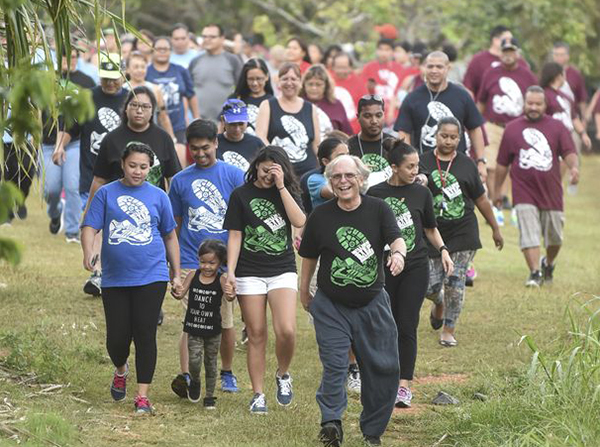
(Photo credit- Mark Scott, Guam Pacific Daily News)
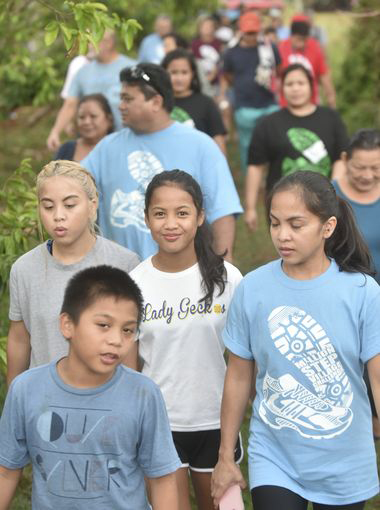
(Photo credit- Mark Scott, Guam Pacific Daily News)
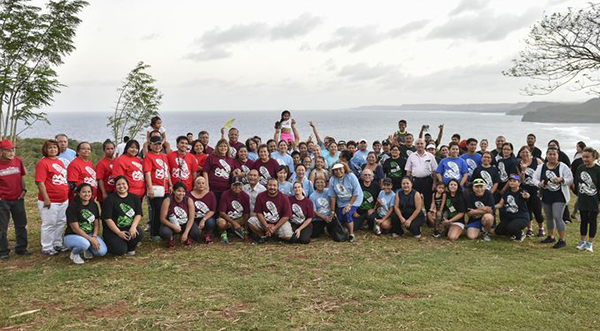
(Photo credit- Mark Scott, Guam Pacific Daily News)
Hawai‘i
CHL Team Hawai‘i and CHL wide Coordinating Center
Writing the final newsbrief for CHL fills me with great appreciation as I look back over the many parts of the CHL program. CHL has been a wonderful experience; working with the communities, seeing the CHL trainees grow to be leaders, and the wealth of information that the CHL data has generated.
The caring and enthusiasm shown by our community partners has grown in size and has seen increased involvement from others in the community. “Putting the health and well-being of children first”, has become more than a saying, it is becoming reality. There were dozens of community partners, some working quietly behind the scene and others out in the community day in and day out. I will not attempt to name all the partners as I would inadvertently leave some out. That being said, I would like to thank Kaala Farm and Eric Enos for their steadfast support and sage advice! Mahalo!

The CHL trainees had to rise up to the high expectation of becoming leaders in their jurisdictions and communities. It has been rewarding to see them develop knowledge, skills, and confidence and become future child health leaders. In Hawaii, we were fortunate to have both Monica Esquivel and Ashley Morisako as the Hawaii CHL trainees. Monica graduated with her PhD in nutrition and is a Junior Researcher with the University of Hawaii at Manoa continuing her work with Head Start. Ashley is studying to become a medical doctor at the John A. Burns School of Medicine. Both women are future child health leaders in Hawaii! The dedication of the trainees and the CHL training group is inspiring! Mahalo!
Much has been learned from the CHL data provided by caring parents and other caregivers and many adorable children. Data were gathered on close to 2,000 children in Hawaii from 2012 to 2015. Information was provided about what they ate and drank, how much physical activity they did, as well as data on sleep and screen time. The children’ height, weight, and waist were measured. That is a lot of data that was graciously provided! The data team is working hard to get the information back to the communities so that it can be used to make our communities even better. Please check out the community reports section of this web page for what is available and keep checking back for more updates The hours and sheer volume of work accomplished by the CHL data team is truly amazing! Mahalo!
It is easy to take for granted the commitment, passion, and willingness to go “the extra mile” that community partners and CHL staff demonstrated throughout this program, but that is really what made CHL work. It has been a great experience for all who were lucky enough to be involved. I cannot begin to list the many, many people there are to thank. Mahalo! Mahalo! Mahalo!
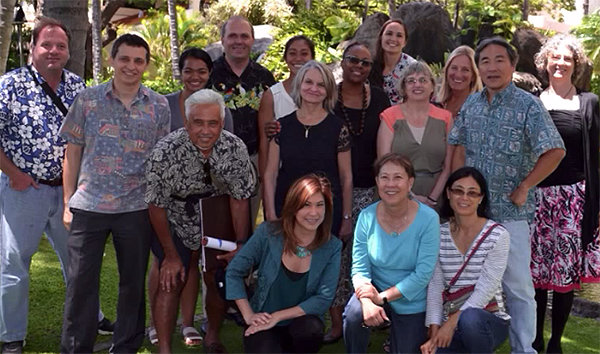
I look forward to the expansion of the CHL vision to all communities and children throughout the Pacific.
Jeannie
